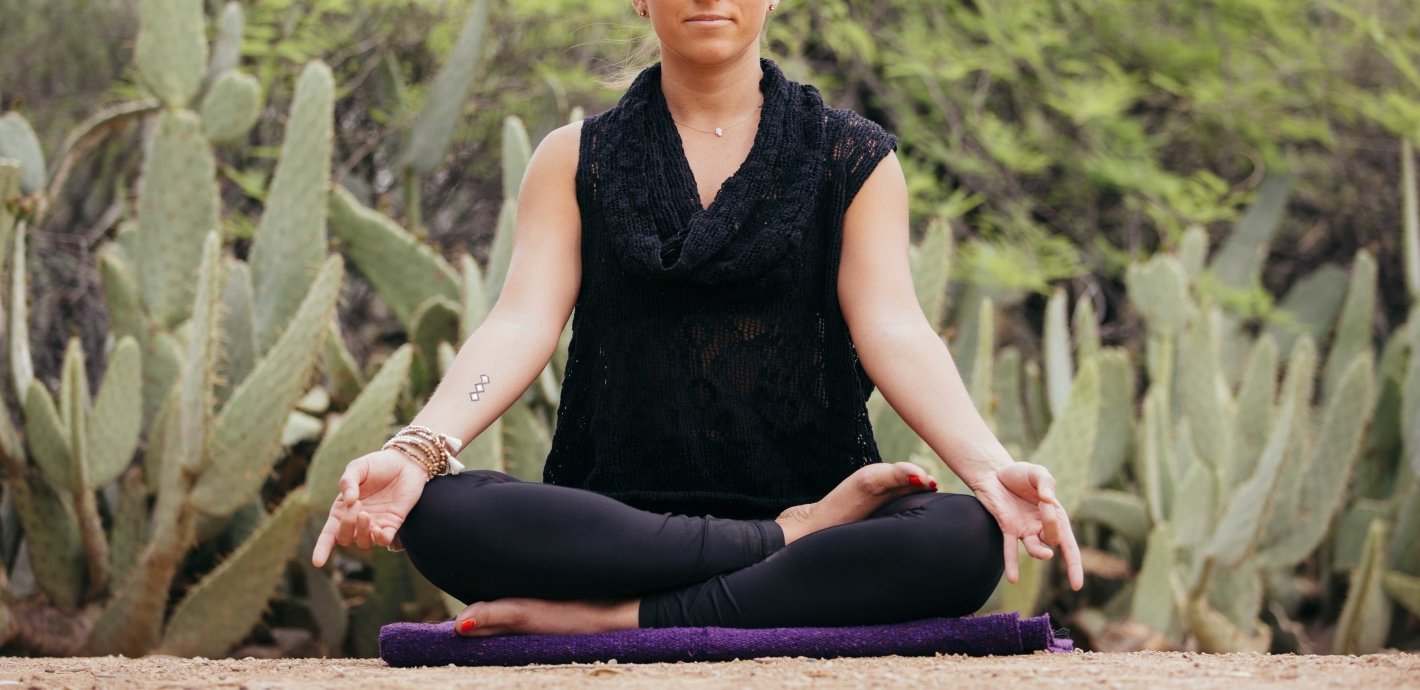There’s a scene in a Portlandia episode where Fred is caught in a technology loop. All of his devices are pinging, updating, and under his breath he starts quietly crying for help as he furiously responds to each Pavlovian cue. The scene, though totally hilarious, is revealing about the way tech can impact our lives when not utilized with moderation and with firm boundaries. The impact of tech is evident and it has now become crucial to unplug. Unplugging is just as important to our well-being as water, exercise, mental health, and yoga.
Studies are finding interesting side effects of technology. We’ve known for a few years that excessive mobile use can impact psychological distress and anxiety, and one study released this year found that mobile dependence and problematic use is a direct factor in the development of mental illness, specifically in populations that use devices to avoid negative experiences or feelings. Another very recent study found a distinct correlation between cellphone-distracted parents and stunted emotional development in infants. Findings from this initial research revealed that when caregivers are distracted by devices, important consistency cues may not happen due to tech disruption and can be missed by the child, potentially leading to lasting distress.
The phrase “digital detox” was added to the Oxford Dictionaries Online in August 2013. There is a growing body of research about the impact of technology, specifically hand-held devices, on our daily lives as well and it has become culturally normative to see the need for distance from these tools. A lack of moderation in mobile use and our hyper-connected habits have been linked to selfishness, sleep issues, increased anxiety, and a distinctive lack of recovery time for the brain. On top of this, recent findings show that the body’s circadian rhythm is being altered by artificial light in the evenings, making it hard for people to unwind. Connectivity has us turned on but without the necessary time away from the ubiquitous devices, we are essentially becoming turned off.
Dan Goleman, Ph.D., is a psychologist and author of New York Times bestseller, Emotional Intelligence. Goleman has chronicled the effect of constant connection and the need for mindfulness-based practices to cultivate resilience and tune our attention to be more present in the moment. “Constant digital distraction stresses us. Regular unplugging times let us recover plus connect with ourselves and the people around us,” says Goleman. With our attention being seduced by the endless distractions, it becomes even more significant to learn to simply pay attention—to ourselves and to those around us.
Related: A Meditation for the In-Between Moments of the Day
A growing movement has turned away from the ever-present tech. Smaller, grassroots efforts have evolved as well as larger-scale opportunities to tune out. We collect devices at dinner parties so people actually talk to each other. There are restaurants that don’t allow mobile use. We have a National Day of Unplugging. There are numerous retreat centers that offer device-free zones, or are device-free altogether—Digital Detox, which leads unplugged retreats; Camp Grounded, embracing the nostalgia of summer camp a la Wet-Hot-American-Summer-vibe; yoga and wellness retreats at, Kripalu Center for Yoga & Health; Buddhist offerings at Shambhala Mountain Center and Tassajara Zen Mountain Center, and many more, some more luxurious, others more austere. There are hipster shops to embrace your ironic-tee-shirt-wearing pre-tech self, such as Folk Rebellion, a Williamsburg-based boutique that emulates all things analog, in reaction to the world of screens. There are ironic apps to modify our behaviors. As a culture, we are seeking refuge.
“We all want to feel connected, and too often people are relying on their devices to get plugged in to life. But the truth, as we all know, is that being ‘connected’ in this way doesn’t really fulfill us in the ways we are longing for,” notes Coby Kozlowski, MA, E-RYT, a life coach and Kripalu yoga teacher trainer. Coby is a passionate advocate for the mindful use of technology and social media, and firm boundaries around disconnecting. During a time when we are inundated by distraction, we often get stuck, forgetting about what really matters in the moment. “Unplugging gives you an opportunity to be present in the moment, drinking in the spaciousness. There is no need to fill every moment with checking an email or a Facebook post —but rather, you have an opportunity to drink in the environment around you. When you unplug and take a moment to simply be with life, you become more intimate with life,” says Kozlowski. It is this presence that can be elusive for many of us but is so crucial for our peace of mind.
Gary Small, M.D., a neuroscientist and professor of psychiatry and biobehavioral sciences and Parlow-Solomon professor on aging at the David Geffen School of Medicine at UCLA, has written much about the brain and our responses to technology. Small has authored over 400 publications, including the bestsellers iBrain: Surviving the Technological Alteration of the Modern Mind and The Memory Bible. “Chronic stress has a negative impact on brain. Getting in the habit of unplugging on a regular basis can help people to optimize the benefits of their stress management exercises,” says Small. Mindfulness-based interventions can bolster the brain against the stress induced by our hyper-connectivity. “Meditation, Tai Chi, and other relaxation exercises have been shown to protect the brain from these negative effects.”
There are simple ways we can protect ourselves from the oppressiveness of device saturation. Below are tips for boosting one’s resolve.
Make the time. “Set aside no-tech times in your day,” says Goleman. “Even better, make them mindfulness breaks.”
Make the tech time work for you. “Although many people are stressed out by the constant intrusions from their smartphones and other digital technologies, they can download meditation apps that can help them unplug and set the timer on the device as a regular reminder,” says Small.
Redefine detox. “I like the idea of a digital detox day or 1/2 a day—something like ‘unplugged Sundays,’” says Kozlowski. “If that seems too big of a leap it could be to be unplugged for the first 2 hours of the day and the last 2hours of the day. And it’s always a good idea to enroll those you live with to try it out too. And I also think its important to get clear on your ‘why’—‘Why am I digitally detoxing, what is the benefit I am hoping for?’ This way, when there is the desire to get online, you can recommit to your intention. Like breaking any habit, it may be uncomfortable, but the benefits on the other side include—more space, more time to ground, and deeper creativity—and maybe even less anxiety!”








Comments (0)